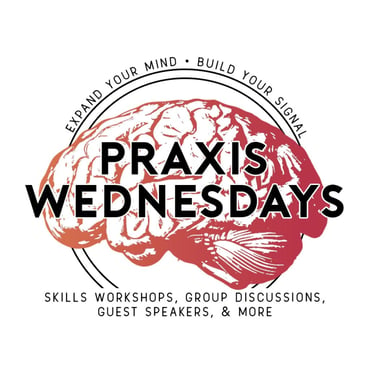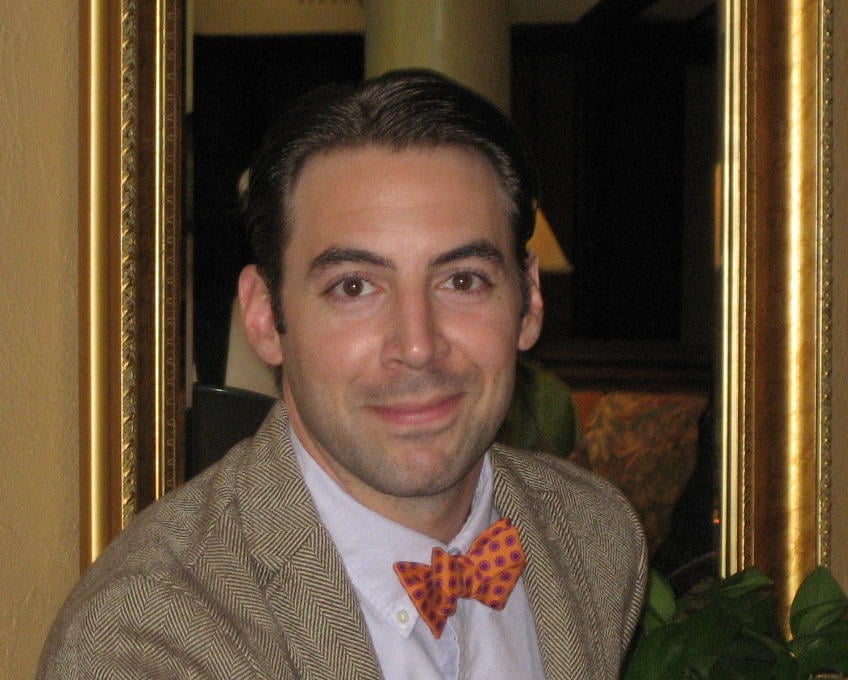 Every week at Praxis, participants and alumni gather for Praxis Wednesdays, weekly group sessions designed to hone intellectual ability and build practical skills applicable to the professional world. These sessions cover everything from academic subjects — philosophy, history, and economics — to technical skills participants can use in their careers — such as writing, marketing, sales, communication, organization, and general business proficiency. Many weeks we’re joined by guest speakers, and other weeks we engage in open dialogue and debate.
Every week at Praxis, participants and alumni gather for Praxis Wednesdays, weekly group sessions designed to hone intellectual ability and build practical skills applicable to the professional world. These sessions cover everything from academic subjects — philosophy, history, and economics — to technical skills participants can use in their careers — such as writing, marketing, sales, communication, organization, and general business proficiency. Many weeks we’re joined by guest speakers, and other weeks we engage in open dialogue and debate.
This week was philosophy night, and we were joined by George Mason University economist Dr. Peter Leeson for a discussion on Rational Choice Theory.

About the Guest: Dr. Peter Leeson is the Duncan Black Professor of Economics and Law at George Mason University. He’s the author of three books and a large number of academic papers on topics ranging from bizarre rituals and superstitions to the customs and economics of pirates. Dr. Leeson was included on Big Think’s list of “Eight of the World’s Top Young Economists” and was listed by IDEAS/RePEc as one of their “Top Young Economists” whose first publication is less than fifteen years old. He’s also a Fellow of the Royal Society of Arts.
Dr. Leeson’s overall topic of specialty is rational choice theory, a school of thought that believes individuals choose the course of action most in line with their personal preferences. Rational choice theory is used to model decision making, especially in the context of microeconomics, but in a broad range of areas, including evolutionary theory, political science, and warfare.
In this open discussion, Dr. Leeson covered:
- What rational choice theory is
- Responses to common objections to rational choice theory
- The existence (or non-existence) of irrational behavior
- How rational choice theory explains some of the world’s strangest situations
- An analysis of topics covered in his most recent book
- How rational choice theory applies to the world around us as non-philosophers
To read more of Dr. Leeson’s work:
April 19, 2018
